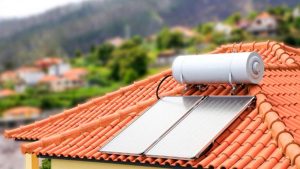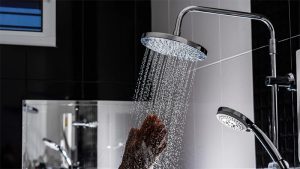Let’s be honest, not all plumbing problems are “urgent”. For minor issues, it may take from 1 day to 3 days for the plumber to visit. However, some plumbing problems are very urgent and should be checked and repaired by a professional as soon as possible.
Exceptional and reliable plumbing teams (like those at Baloo Plumbing) will do everything possible to assist you in the event of an emergency, regardless of time of day or day of the week.
Serious plumbing-related emergencies may include:
- Loss of water on your property.
- Safety measures need to take place to prevent water damage to the property.
- You have a blocked drain.
Here are a few examples of real plumbing emergencies:
- A blocked sewer drain or broken sewer pipe
- A blocked stormwater drain
- A blocked toilet
- A gas leak
- No water at all
- No hot water
- A burst water pipe
- A consistent, substantial leak from a roof or ceiling
Plumbing Emergencies For Which You’ll Definitely Need A Pro Plumber
- Burst Pipes or Burst Flexi Hoses
- Did you know that damaged, over-inflated or defective flex hoses are the leading cause of water damage in Australian homes? Hundreds, if not thousands of dollars in damage can be incurred. To give you an overview, if your flexi hose bursts while you’re out and left on for hours, your whole house will be in hundreds of liters of water when you get home.
- If you live in a high rise building and a flexible hose bursts in your second or third floor bathroom, your entire home can ‘float’ in a matter of hours. If you live in an apartment complex, a damaged flexible hose left undetected for an extended period of time can cause serious damage to your home, neighbors, and even the entire building.
- All flexi hoses in your apartment or home should be inspected regularly to ensure they are in good working order. When inspecting, look for kinks in the stainless steel binding, rust, small leaks, small puddles in or around the flex hose area, etc.
- In Australia, most professionally installed flexible hoses carry an expiration date label. Check your flexi hoses today and if they are past their expiration date or do not have an expiration date label on them. I recommend calling your local plumber to have all flexi hoses in your home inspected.
- We recommend that you inspect your flexi hose annually for signs of damage or wear. However, if a pipe bursts or water comes out of a flexible hose, turn off the main water valve. Continue running until all remaining water is used up. After that, you should contact a professional emergency plumber in your area.
- Burst or Damaged Hot Water Heater
- If your home’s hot water heater has burst or exploded right now, please call our team on 0426 502 997 and we’ll send our expert emergency plumbers out to your home.
- Is your shower or tap releasing water that is too cold or too hot? Do you also experience some strange odour as the water runs or maybe it’s a slightly brown colour? Chances are your hot water heater needs to be serviced or replaced.
Here are some steps to take now if your hot water heater bursts (or you want to be prepared if it does burst at some stage):
- Switch off the hot water tap supply OR the main water supply
In the event of a water heater burst or has severe water leakage, it is recommended to cut off the main supply to the water heater as soon as possible. This is to protect your home and belongings from flooding. Water is still being pumped into the tank, so flooding can occur quickly.
Locate and close the stop valve that supplies water directly to the water heater. Alternatively, you can turn off the water supply that supplies water to the entire property.
Please note that the remaining water in the tank may continue to leak. However, if you can locate the leak, you can use a bucket to collect the water.
In most Australian homes, the water main is in the front yard or on the side of the house. If you live in a Strata building, you’re more likely to find it under a sink or laundry tub (if you still can’t find it, Strata or building management can help locate it). - Turn off the hot water switch from the electric switchboard
First of all, do you know if the water heater is electric or gas? Once this is established, the next step is to close the stop valve that feeds the hot water tank.
Turn off the hot water switch on the electrical panel. The panel usually has letters such as “hot water”, “HWS”, “water”. Flick this to the OFF position. This step is very important as it will stop the flow of electricity to the hot water tank to prevent an electric shock hazard. - Turn off the gas tap supply to the hot water tank
If you find that your hot water supply is controlled via a gas tank, turn off the main gas valve immediately. This ensures that the rest of the water in the tank is not heated further, eliminating the risk of gas leaks.
This is an important step after shutting off the water supply and can make the area as safe as possible for you, your family and professional plumbers who are likely on their way. - Remove any items of furniture or belongings that may be affected by flooding water
In the event of a significant leak or water build-up, it is recommended that all visible furniture and items that may be affected by flooding be removed from the water heater. This is the easiest way to ensure that your belongings and furniture are protected and safe. For easy access to and from the premises by the plumbing team or family, furniture should be placed far away to ensure ease of access to and from the property. - Phone A Professional!
Our friendly team of experienced professional plumbers are highly trained in water heater failure and water damage repairs. We are here to provide expertise, tips and support throughout the process, starting with your call. Hot water tank ruptures can occur at the most unexpected times.
That is why Baloo Plumbing offers its customers in Sydney his 24/7 emergency plumbing support, including public holidays.
Please note: If you’re in an emergency right now with your hot water heater, please call us on 0426 502 997 and we can talk you through these steps over the phone as we dispatch one of our teams.
- A Badly Blocked Drain
- If your drain is known to be slow, it may eventually clog up badly and require a professional to unblock it. Kitchen sink drain blockages usually occur at the p-trap. Food leftovers, grease, coffee grounds, vegetable scraps, cooking twine are the major culprits.
- The problem here is that all the drains are running into the main drain, and dirt from the bathroom builds up as it gets caught in dirt from the kitchen drain, etc., resulting in a major immovable blockage for which you will need to hire a professional plumber to clear it.
- A blocked drain may be a sign that the main drain is blocked. If the main drain is clogged, anything that flows down the drain will be clogged and unable to flow through the pipe. When this happens, water, waste, and other materials that have flowed down the drain will begin to back up through the drain.
- Signs of a main sewer line blockage:
- Multiple plumbing fixtures blocking up at the same time
- The overflow relief gully outside of your house is overflowing with water
- Cracks in concrete with water seepage
- Overflowing grates, floor waste or gutters
- Distinctive sewage smells
- Unusually soggy garden spots or areas of super growth
- A Blocked And Overflowing Toilet
Is your toilet clogged? In this situation, it is easy for excess water to overflow when you flush. This can lead to serious unsanitary problems and even water damage elsewhere in your home.
A clogged toilet requires immediate attention. For example, it is not uncommon for foreign matter (things that do not belong in the drain) to get mixed up. “Flushable” baby wipes, sanitary napkins, diapers, cat litter, cosmetic pads for rinsing.
If this problem occurs, the trap is likely clogged and will require a professional to clear the blockage.
Toilet clogs can also be caused by obstructions “along the pipes”. Typically, this is a heap of grease that builds up over time from materials such as oils, greases, and “flushable” cloths that intertwine and clump together to form large clumps.
Clogged drains can also be caused by the encroachment of aggressive tree roots. Roots take advantage of small cracks in sewer pipes to grow in nutrient-rich water and grow through pipes.
If your toilet is running slow, half full, or has waste backing up into the toilet, you should contact your plumber. A sign that your toilet is trying harder than it should to clear the sewage is a sign it needs a plumber.
You don’t want to end up in a situation where filth and water back up your toilet, flooding your bathroom and possibly other parts of your home. This poses a serious health risk and will require an experienced plumber to solve this problem.
One of the best ways to avoid overflowing and clogging toilets is to avoid flushing products other than toilet paper down the toilet. If your toilet is clogged or overflowing, contact our expert emergency plumbers in Sydney (or he can call the Baloo Plumbing team right now on 0426 502 997). - Water Leaks
Leaks can occur in plumbing and water-related equipment that runs throughout your home. There may also be a minor water leak. Ignoring small leaks can result in expensive repairs.
Is your property’s water bill above average? This can be a big clue that you have a leak in the corner of your home. Otherpossible signs of a leak in your home include the sound of dripping water, dripping water, dampness, unexplained mold, and the occasional puddle. If you spot any of these signs, call a professional plumber in Sydney. - Gas Leaks
A gas leak is a serious plumbing emergency.
If you smell gas, all gas appliances should be checked immediately. Also, turn off the gas stove and open the window to let the gas escape. If, after completing these steps, carbon monoxide levels continue to rise and the smell of gas persists, you should leave the facility immediately and contact an emergency plumber.



